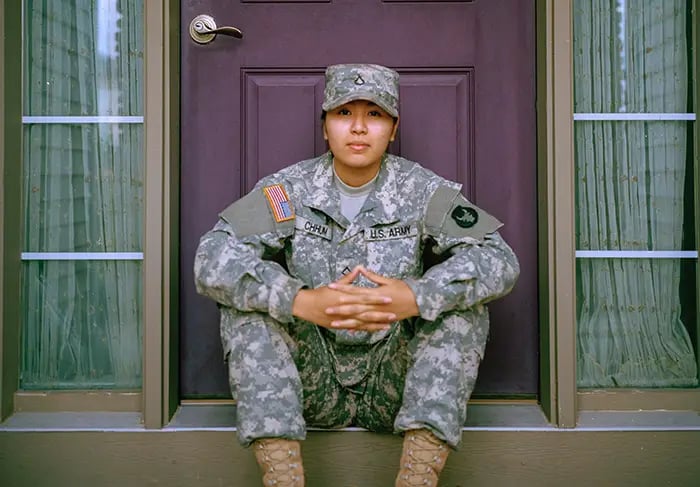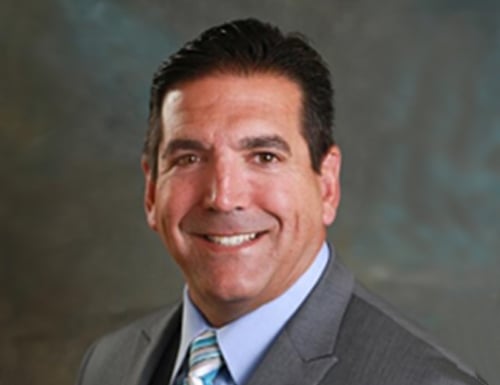2 min read
Webb v. McDonough: VA Erred by Requiring Exact Match Under Analogous Rating Rule
John W. Webb served in the United States Army from 1968 to 1970 and received an honorable discharge. After service,...

A division of Whitcomb Selinsky, PC proudly focused on Veteran Disability Benefits.
Great Day Colorado interview with Rocky Mountain Disability Group Senior Attorney Ken Enright on VA disability benefits and appealing claim denials.
Our VA benefits team is intentionally made up entirely of Veterans. When you come to us, you can trust that we understand your experience and are fully committed to your case. Hear directly from our founder, Joe Whitcomb, in the video above.
The Department of Veterans Affairs (VA) manages several benefits and services for veterans and their family members or dependents. There are many benefits available to those who have served our nation. One of these benefits includes disability compensation.
Injuries can and often do happen during military service. Some injuries or illnesses are minor with no lasting effects, while others have consequences impacting you and your family for the rest of your life. If you have a service-related injury, illness, or condition, or a preexisting condition worsened by active duty or service, you may qualify for disability compensation through the VA.

Our legal team at Rocky Mountain Disability Law Group is uniquely qualified to assist you in obtaining the veteran benefits you deserve. Our VA disability legal team is comprised entirely of veterans, and we have first-hand experience with the VA claims process. We understand the complexities of the appeals and eligibility process because we have been through it ourselves.
At Rocky Mountain Disability Law Group, our disability claim experts can assist you with collecting the necessary information needed for your claim. We will examine your medical information and factor in all conditions relating to your disability to help you receive the highest rating possible. If your claim was denied, we can assist in appealing your case before the VA.

Specific severe disabilities or conditions may be eligible for additional special monthly compensation (SMC). To be considered for VA disability compensation, you must meet the following essential criteria:
Compensation for your veteran disability claims is typically dependent on the rating system. Therefore, you will first need to obtain your disability rating. This rating and other factors will determine your monthly disability compensation and other healthcare benefits.
Based on the severity of the service-connected condition, the VA assigns a rating from 0 percent to 100 percent. If you have more than one disability, the VA uses a combined disability rating system.
Claims are denied for various reasons, but usually, the VA denies them because you failed to establish all three elements of service connection.
There are several ways to appeal this decision:
Our VA disability legal team is comprised entirely of veterans, and we have first-hand experience with the VA claims process. We know what you are going through because we’ve been where you are.
We will help you navigate through the appeal process and select the best appeal route for your case. We will also help you identify, gather, and submit favorable evidence. It is our responsibility to know the legal protocol and present your case with the utmost professional standards. We are your advocates throughout the entire process.
If you have a current disability that was caused by or made worse during your military service, contact us. At Rocky Mountain Disability Law Group, our dedicated team of veteran disability benefits professionals will partner with you throughout the appeal process. We stand by your side, so you do not have to do it alone.
With high denial rates and lengthy decision letters, many veterans end up frustrated and disheartened after pursuing the benefits they earned. Claims are denied for various reasons, but usually, the VA denies them because you need to establish all three elements of service connection. If your Veterans Affairs (VA) disability claim has been denied and you are not receiving disability payments, you may feel like that is the end. But do not let the VA have the final say. You have a right to appeal the VA’s decision.
There are several ways to appeal this decision:
We will help you navigate the appeal process and select the best appeal route for your case. We will also be able to help you identify, gather, and submit favorable evidence. We know the legal protocol and will be sure to present your case with the utmost professional standards.
Over time, your service-related disabilities can interfere with your job. If you cannot work at your current job or sustain employment, you may be eligible for a Total Disability based on Individual Unemployability (TDIU).
TDIU enables veterans to be compensated at a rating of 100 percent, even if their total service-connected rating does not add up to 100 percent. To be eligible, you must meet specific requirements, including:
Based on the severity of the service-connected condition, the Department of Veterans Affairs (VA) assigns a rating from 0 percent to 100 percent, typically in 10 percent increments.
If you have more than one disability, the VA uses a combined disability rating system that does not follow "normal" math. Instead of adding your disability ratings, VA math factors a single rating into the percent you are considered “able.”
30 percent rating for a neck injury
20 percent rating for a right knee injury
However, the combined rating math does not simply add all of the ratings together to calculate your total disability. Instead, the VA racks and stacks the disabilities in descending order. In this example, disabilities are ranked 30 percent and 20 percent. The combined disability math is:
100 (the initial baseline for all Veterans) x 0.3 = 30
100 - 30 = 70
70 is your new baseline
70 x 0.2 = 14
70 - 14 = 56
100 - 56 = 44
The disability rating is 40 percent
The VA disability claim process encompasses several steps, including the initial filing, potential denial, and subsequent appeals if necessary. It begins with submitting your claim to the VA, which then evaluates your medical evidence to determine eligibility for benefits. If your claim is denied, you have the option to appeal, which involves various stages such as the Supplemental Claim, Higher-Level Review, or Board of Veterans Appeals (BVA).
Utilizing a Veterans Service Organization (VSO) for your VA claim can be beneficial, as they offer valuable assistance and support throughout the claims process. VSO representatives are knowledgeable about VA procedures and can help gather necessary evidence, complete paperwork accurately, and advocate for your rights. They provide invaluable guidance, especially during appeals, ensuring your claim is presented effectively and maximizing your chances of success.
When filing a VA disability claim, gathering comprehensive evidence is crucial to support your case effectively. This evidence typically includes medical records documenting your service-connected injury, illness, or condition, as well as any relevant treatment history. Additionally, statements from healthcare providers detailing the severity and impact of your disability are essential. Other supporting documents may include lay statements from yourself or colleagues detailing how your disability affects your daily life and work capacity. Ultimately, the more compelling and thorough your evidence, the stronger your claim will be.
Certain severe disabilities or conditions may be eligible for additional special monthly compensation (SMC).
At Rocky Mountain Disability Law Group, our disability claim experts can assist you with collecting the necessary information needed for your claim. If your initial claim was denied, we can assist in appealing your case before the VA.
If you are still not sure if you qualify for VA compensation benefits, call our VA specialists at

Joe is a former Army Ranger who served in Operation Desert Shield and Desert Storm. After his VA claim for his service-related disability was rejected, he represented himself before the Board of Veterans’ Appeals in an appeal that took more than five years. As a result, he learned how unnecessarily complex the VA appeals process was and decided to make representing veterans in this process a priority in his legal practice.

Ken is a former artilleryman who served in Operation Iraqi Freedom. In his practice, Ken counsels military veterans to help them obtain the VA disability benefits they are entitled to. He provides representation at both the Agency and Court of Appeals for Veterans Claims. Ken also assists clients by providing representation at Board of Veterans’ Appeals hearings.

Rachel proudly served the United States during her time in the U.S. Marine Corps and served overseas in Operation Iraqi Freedom (OIF) as an Ordnanceman. Besides helping veterans with their legal claims, Rachel assists with planning a yearly Veterans hike in Milwaukee through “Irreverent Warriors”, an organization aimed at bringing veterans together using humor and camaraderie to improve mental health and prevent veteran suicide. Rachel continues to educate herself on veterans' issues and is currently researching chemical exposure and its impact on veterans' health.

Erika is a U.S. Army National Guard veteran. During her time in the Army National Guard, she was responsible for daily administrative tasks. Additionally, Erika ensured team members were administratively ready to deploy, including such documents as wills, emergency notifications, powers of attorney, and more. Having suffered injuries while in the military, Erika battled tirelessly to secure her rights and benefits. She understands the frustration experienced throughout the VA benefits claims process. Erika is proficient in American Sign Language and is a native Spanish speaker.
Get Started in
 Discuss Your Claim
Discuss Your Claim  Explore Your Options
Explore Your Options  We Will Advocate For You
We Will Advocate For You


Dec 22, 2025 by Joe Whitcomb
John W. Webb served in the United States Army from 1968 to 1970 and received an honorable discharge. After service,...
Nov 18, 2025 by Joe Whitcomb
Felix Paul Phillips appealed a decision issued by the Board of Veterans' Appeals concerning entitlement to a total...
Sep 20, 2025 by Joe Whitcomb
William P. McLendon served on active duty in the U.S. Marine Corps from December 1963 to December 1967. In May 2001, he...
Colorado
300 Union Boulevard
Suite 200
Lakewood, CO 80228
(303) 534-1958 (local)
© 2026 · All Rights Reserved · Whitcomb, Selinsky, PC